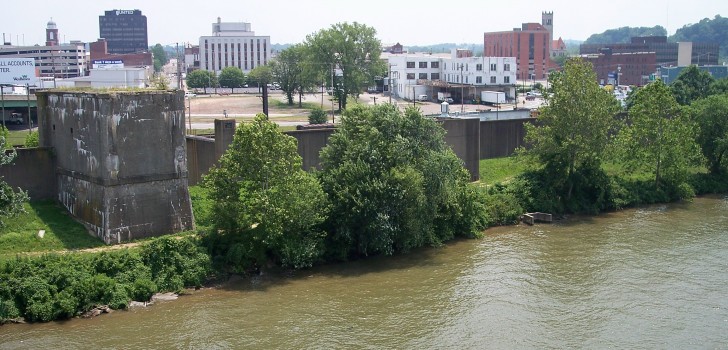The drop in both demand and production of U.S coal brought about by tougher environmental rules and low natural gas prices is sounding the death knell for many communities in the coal producing Appalachia region.
Without money coming in from coal sales, many towns and counties are having to cut services, even those deemed essential.
Judge-executive of Eastern Kentucky’s Martin County Kelly Callaham said “It’s just been devastating to us.”
Callaham said the this year’s budget for the County is $7 million, a cut of $1.5 million over three years. “You take a million and a half out of a budget that size, it’s a disaster.” she said.
In Letcher County in Kentucky, cuts to the sheriff’s department budget has seen emergency response times averaging at an hour, double what is was last year, because of staff and overtime pay cuts.
Once the richest county in the State of West Virginia, Boone County, is thinking about ending free garbage pick-up.
School districts are reeling from loss of previously received tax dollars from coal mine producers. The school district in Boone County this year received $5 million less in coal-related tax revenue which equates to 10 percent of its budget, according to Deputy Superintendent Jeff Huffman.
Mayor James Craft of Whitesburg, Kentucky said his town has lost 50 percent of its tax business tax revenue.
According to the The Appalachian Regional Commission, 93 of 420 counties Appalachian counties are now considered as “distressed”. Most are in central Appalachia , which straddles Tennessee, Kentucky, West Virginia and Virginia, and which have been major coal suppliers for 200 years.
Many utilities no longer use Appalachian coal, having switched to burning natural gas, or using alternative energy sources . According to an U.S. Energy Information Administration official, coal’s once dominant role in electricity generation will this year fall to 35 percent. Ten years ago that figure was 50 percent.
According to Coal Industry experts, overall U.S coal production this year is expected to be the lowest for almost 30 years, falling to 914 million tons, with the number of active mines and pits having sunk to just 39 percent for the period 2005 through to 2015.
Along with the mine closing have come high unemployment and bankruptcies are sweeping the region. In eastern Kentucky, coal related jobs have fallen to 7,153 compared to 14,412 in 2008.
The White House has put forward a proposed package of several billion dollars worth of tax breaks, grants, for its budget next year to assist Appalachian coal communities, but this has met with opposition in Congress from Kentucky Republicans and the House Appropriations Committee, who are calling for a rollback of environmental rules and direct federal assistance.
Danielle Smoot, a spokesman for chairman of the House Appropriations Committee Hal Rogers, said “Any plan from the White House aimed at improving the quality of life for the people of coal country is not serious or credible without a legitimate proposal to revisit these wrongheaded, job-killing regulations.”
The judge-executive of Harlan County, Kentucky, Democrat Dan Mosley said “I want to mine coal, but we’ve got to look at other ways to put people to work, so they can provide for their families.”
Albey Brock, the top Republican official of Kentucky’s Bell County said “If you’ve ever been really hungry in your life, you’d eat at any restaurant you can find. The federal government has caused our problems, and they’re going to have to help us solve it.”
Stay Connected